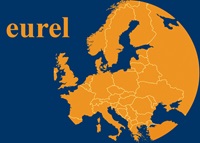Till date, there is little research that has addressed the impact of migration on identity, culture and politics of Muslim communities in Europe and especially women. Although women liberation movements and Mee Too Movements have called for the greater sexual empowerment as well as rights and freedom for women such an impact needs to be addressed urgently, to assess and analyse policies and strategies towards the greater challenges of GBV and its ramifications on culture and identities of women living in minority European context/s.
Religion still remains an important arbiter in private and public spheres of shaping cultural identities of migrant Muslim communities in Europe and plays a determining role in impacting sociological and political trends which if left unattended can lead to grave misunderstandings and aggravate very precarious situations.
Women in the midst of movements and migration face countless challenges to their identity, culture and belonging; which can result in deep transformations. Such a change has historically worked along with the currents of gender-based violence; notwithstanding exploitation and discrimination along the social, political and even economic realm which continues to be extremely challenging along with the complex issues of social cohesion, traditional, psychological and anthropological domains.
Thus, there is a realization to bring about the historical narrative of the role of gender and violence from the point of view of marginal streams of gender minorities, who remain at the periphery; which include a wide array of women representations (the women disenfranchised groups who are secluded from the political arena; and (who have almost no conspicuous voice within the larger discourse on the majoritarian civil society narrative).This perspective attempts to counter beliefs that treat populations and women as passive. Thus, this perspective offers the point of view of the ‘marginalized' which in this case is represented by migrant gender identities in their struggle to change and alter the nature of the political narrative i: e to anticipate the urgency within the political milieu: to put its historical emphasis to a bottom up than a top down.
Such an initiative can not only capacitate highly intricate issues of the grievances of women but can also help rendering to identify the problems, rights to citizenship, belonging, identity; corresponding to the women voices and struggles; their representation in European civil society and accentuating the true essence of the voices from the mainstream.

 PDF version
PDF version
